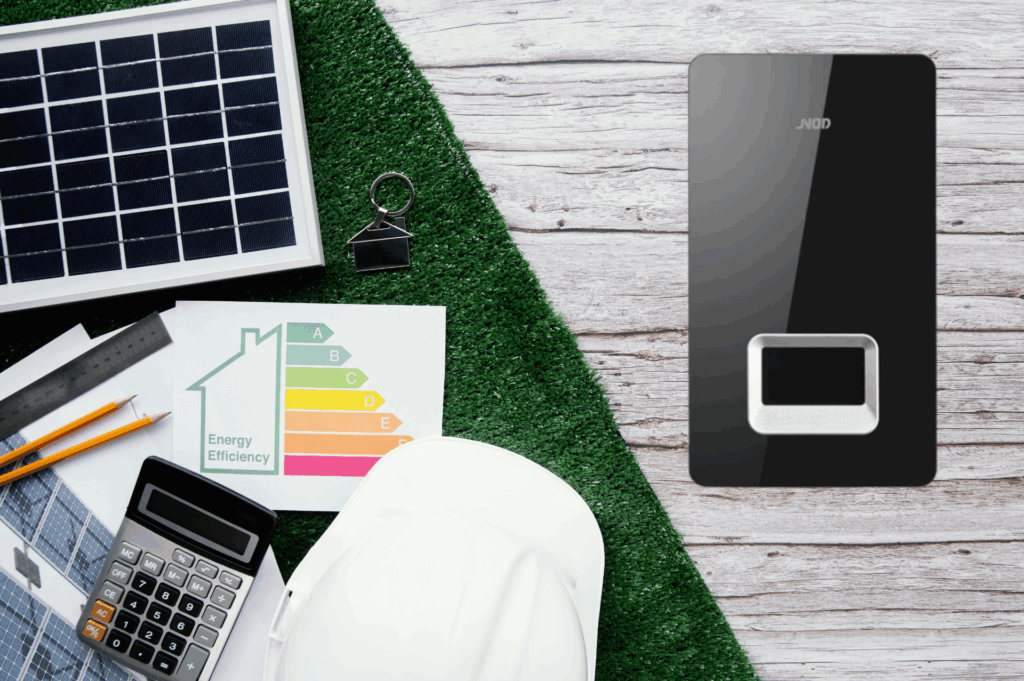How Much Does Electric Heat Cost Per Month In the Home?
As more homeowners turn to electric heating, understanding the monthly costs is essential. Whether you have an electric boiler, a heat pump, or another type of electric heating system, understanding your electric heating costs per month can help you manage your energy bills more effectively. This guide breaks down average costs, factors that influence them, and ways to lower your heating bills.
Average Electric Heat Cost Per Month
The electric heat cost per month varies based on the heating system type, home size, electricity rates, and climate.
Average Cost Breakdown
- Small apartment (50–80 m²): €150 – €350 per month
- Medium-sized home (100–150 m²): €400 – €700 per month
- Large home (200–300 m²): €700 – €1,200 per month
These figures are based on average European electricity prices of €0.25–€0.45 per kWh and assume typical winter heating usage.
Example Calculation
If you use an 18kW electric combi boiler for heating 6 hours per day:
- 18kW × 6 hours = 108 kWh per day
- 108 kWh × €0.30 (electricity rate) = €32.40 per day
- €32.40 × 30 days = €972 per month
This is for heating only. If the system also supplies hot water, the cost increases slightly.
Key Factors Affecting Electric Heating Costs
1. Local Electricity Rates Standards
Electricity costs vary significantly by country and provider. In 2025, average residential electricity rates in Europe range from €0.25 to €0.45 per kWh.
2. Heating Efficiency of the Heating System
- Electric resistance heating (boilers, radiators) has 90%-100% efficiency but high operating costs.
- Heat pumps (air source or ground source) are 300%–500% efficient, reducing monthly costs by up to 70 percent.
3. Condition of the House: Size and Insulation
Larger homes naturally require more energy to heat. Homes with poor insulation will consume more electricity, increasing costs. Heating costs are directly related to how much heat your home loses. Poor insulation can lead to a lot of heat loss, which means your heating system has to work harder and consumes more electricity.
4. Climate and Winter Temperatures
Colder climates require longer heating hours, significantly raising energy consumption during winter months.
5. Usage Electric Heat Patterns
How long the heating runs each day and whether you heat the entire home or specific zones impact the total cost.
Electric Boiler vs Heat Pump: Cost Comparison
| Heating System | Efficiency | Average Monthly Cost |
|---|---|---|
| Electric Boiler (resistance) | 100% | €600 – €1,200 |
| Air Source Heat Pump (ASHP) | 300–400% | €200 – €500 |
| Ground Source Heat Pump (GSHP) | 400–500% | €150 – €450 |
Electric boilers are generally cheaper to install but more expensive to run. Heat pumps are more expensive to install but can offer significant savings in the long run.

How to Lower Your Electric Heating Costs
Improve Insulation
Adding insulation to walls, roofs, and floors reduces heat loss and cuts energy usage.
- Wall Insulation: Cavity wall insulation or internal/external wall insulation can reduce heat loss by up to 35%.
- Roof and Loft Insulation: Up to 25% of heat escapes through the roof. Proper loft insulation pays for itself in just a few years.
- Floor Insulation: Especially important in older homes. Insulating suspended timber floors prevents drafts and heat loss.
- Window Upgrades: Double or triple glazing dramatically reduces heat loss through windows. Adding thermal curtains further improves performance.
- Air Sealing: Seal gaps around doors, windows, and pipe entries to eliminate cold drafts.
Install Smart Thermostats
Smart thermostats allow better control over heating schedules and room-by-room temperature management, lowering unnecessary energy consumption. It can save 10%–25% on heating costs annually.
- Zoning: Heat only the rooms you use.
- Learning Algorithms: Smart thermostats learn your routines and adjust temperatures.
- Remote Control: Adjust heating via apps even when you’re away.
- Geofencing: Automatically lowers heating when no one is home.
- Energy Reports: Provides insights into energy use to help optimize further.
Combination of Heat Pump and Electric Boiler
Heat pumps offer 60 to 75 percent savings on electricity consumption compared to traditional electric boilers. Using a heat pump as the main heating source while keeping the electric boiler for backup or hot water can significantly lower your electricity bill—often cutting it by 40–60% compared to relying solely on electric resistance heating.
Use Off-Peak Electricity
Some areas offer lower electricity rates late at night or early in the morning. Heating during off-peak times can reduce costs. Up to 30% lower electricity costs by shifting usage to off-peak times.
- Check with your electricity provider if you have time-of-use tariffs (like Economy 7 in the UK).
- Set your electric heating system or heat pump to run heavily during off-peak hours.
- Install a thermal storage system, such as underfloor heating or a water tank, that stores heat generated during off-peak times for use during the day.
Combine with Renewable Energy
Pairing electric heating with solar panels helps offset electricity costs and leads to long-term savings.
- Solar PV Panels: Generate electricity during daylight, offsetting your electric heating use.
- Battery Storage: Store excess solar energy during the day for heating needs at night.
Conclusion
How much does electric heat cost per month in the home? The answer ranges widely from €150 to €1,200, depending on the system type, home size, local electricity rates, and how efficiently the home is insulated.
Electric heating is clean, safe, and convenient, especially in homes without access to gas. Taking the steps above can make electric heating far more affordable.
Homeowners considering electric heating should evaluate their current energy consumption to manage long-term costs effectively.
